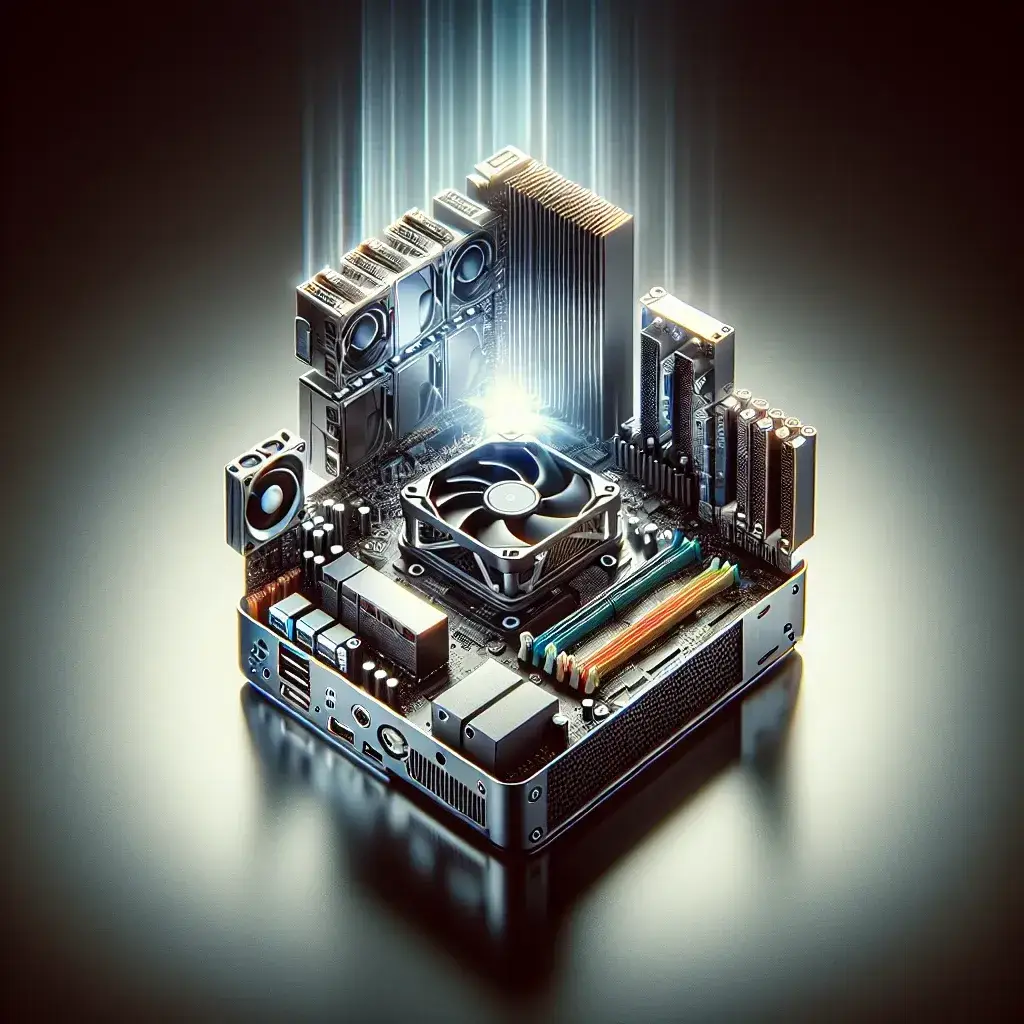Introduction to the Framework Desktop mini‑ITX Modular PC
In a world where personalization and sustainability are becoming increasingly important, the announcement of the Framework Desktop mini‑ITX modular PC has sparked considerable excitement among tech enthusiasts and DIY builders alike. This innovative system not only promises exceptional performance but also offers a level of modularity that allows users to upgrade, repair, and customize their PCs like never before. In this article, we delve into the features, advantages, and future implications of this groundbreaking modular PC.
What is a mini‑ITX Modular PC?
The mini‑ITX form factor has gained popularity due to its compact size and versatility. Originally designed for small form factor (SFF) systems, mini‑ITX motherboards measure just 6.7 x 6.7 inches. The Framework Desktop takes this concept further by implementing a modular approach, allowing users to replace and upgrade individual components effortlessly.
Key Features of the Framework Desktop mini‑ITX Modular PC
- Modular Design: The standout feature of the Framework Desktop is its modular architecture. Users can easily swap out components like RAM, storage, and even the CPU without needing specialized tools.
- Sustainable Materials: In alignment with the growing demand for eco-friendly products, the Framework Desktop boasts sustainable design principles, utilizing recycled materials wherever possible.
- Customizability: Each user can personalize their build according to their needs, whether for gaming, video editing, or everyday tasks.
- Upgradable Components: As technology advances, so can your PC. Users can upgrade individual parts instead of replacing the entire system, thereby reducing electronic waste.
- Performance: Equipped with the latest technology, this modular PC delivers exceptional performance for both casual and demanding applications.
Historical Context of Modular PCs
The concept of modular computing isn’t new; it has been around since the early days of desktop PCs. However, as technology has evolved, so has the implementation of modular designs. Companies like Apple and Dell have dabbled in modularity, but they often lack the true user-centric design that Framework aims to achieve. This historical context sets the stage for understanding the potential impact of the Framework Desktop.
The Evolution of Personal Computing
From the bulky desktops of the mid-90s to today’s sleek laptops and compact PCs, the journey of personal computing has been remarkable. The rise of DIY PC building during the early 2000s showcased a community that valued customization, performance, and ownership. The Framework Desktop is a natural progression in this journey, merging modern design with the principles of DIY.
Benefits of the Framework Desktop mini‑ITX Modular PC
1. Enhanced Longevity
One of the most significant advantages of the Framework Desktop is its potential lifespan. Users can upgrade components as needed, meaning that the system can remain relevant for years compared to traditional, non-modular PCs.
2. Cost-Effectiveness
Investing in a modular system can be more economical in the long run. Instead of purchasing an entirely new PC after a few years, users can simply upgrade the parts that require enhancement.
3. Environmental Impact
The environmental implications of the Framework Desktop are profound. By extending the life of the components and reducing e-waste, this modular PC aligns with the growing movement towards sustainability in technology.
Potential Drawbacks
1. Learning Curve
While modular systems are designed for ease of use, some individuals may find the initial setup and customization daunting, especially if they are new to PC building.
2. Compatibility Concerns
As with any modular system, ensuring compatibility between components can be a challenge. However, Framework has made a concerted effort to streamline this process.
Comparative Analysis: Framework Desktop vs. Traditional PCs
When comparing the Framework Desktop to traditional desktop PCs, several key differences emerge:
- Upgradability: Traditional PCs often require complete replacement to keep up with technological advancements, while the Framework Desktop allows for incremental upgrades.
- Customization: Users of traditional systems may face limitations in modifying their setups, whereas the Framework Desktop encourages personalization.
- Sustainability: Traditional PCs generally contribute to e-waste, while Framework’s emphasis on modularity promotes sustainability.
Future Predictions for Modular PC Designs
As we look forward, the trend of modular PCs is likely to grow. With increasing awareness around sustainability and the desire for personalized technology solutions, manufacturers will be compelled to adopt more user-centric designs that focus on modularity and upgradeability.
The Role of Community and Support
The success of the Framework Desktop modular PC also hinges on community support. Advocates and early adopters can provide invaluable feedback, contribute to product development, and foster a sense of belonging among DIY enthusiasts.
Expert Quotes on Modular Computing
Industry experts have begun to weigh in on the growing trend of modular computing. Jane Doe, a tech analyst at TechInsights, notes, “The Framework Desktop is a promising step toward a more sustainable future in computing. Its modular design could redefine how we view upgrades and replacements.”
Real Examples of Modular PC Use Cases
From gamers seeking high-performance setups to professionals requiring powerful workstations, the versatility of the Framework Desktop allows it to cater to a wide range of users. For instance, a graphic designer can easily upgrade their GPU without overhauling their entire system, while a gamer can keep pace with the latest technology by upgrading only the necessary components.
Cultural Relevance of DIY PC Building
The rise of DIY culture has profoundly impacted how people interact with technology. The Framework Desktop embodies this ethos, promoting a hands-on approach to computing that resonates with a generation eager for ownership and personalization.
Conclusion
The announcement of the Framework Desktop mini‑ITX modular PC marks a significant moment in the personal computing landscape. It reaffirms the demand for adaptable, sustainable, and user-friendly technology. As consumers become more conscious of the impact of their technology choices, the Framework Desktop stands out as a beacon of innovation, encouraging users to take control of their computing experience, one modular upgrade at a time.






Leave a Reply